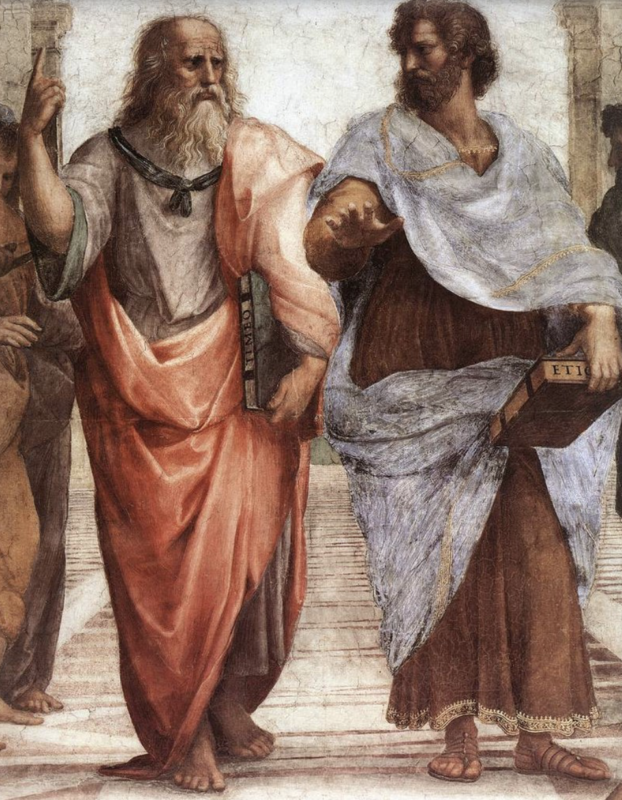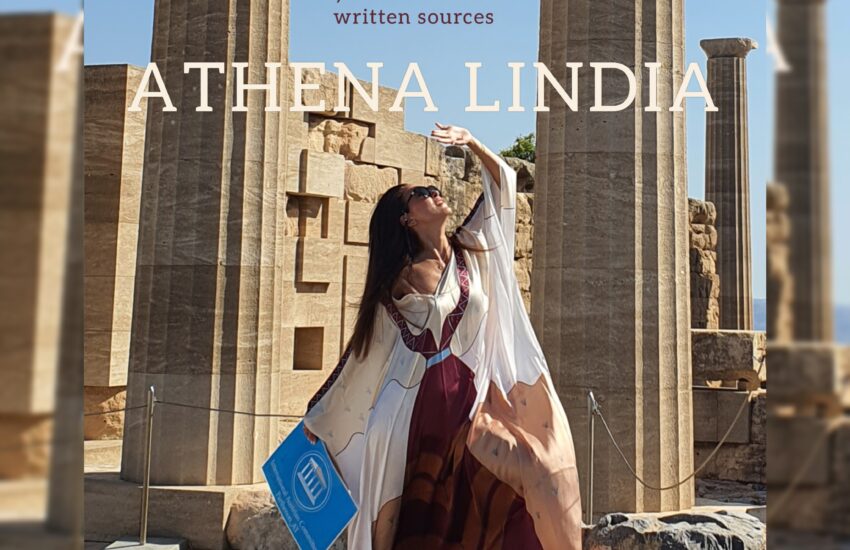Grèce, la renaissance
*Alexandra Pistofidou, 2 min read
Δύσκολη και μονότονη η ζωή των σκλαβωμένων Ελλήνων. Οι καταπιέσεις και τα αισθήματα μειονεξίας κάμπτουν το ηθικό πολλών. Οι μόνες διέξοδοι είναι η σκληρή εγκαρτέρηση, η φυγή ή η εξωμοσία. Οι σκληρές βιοτικές και πολιτικές συνθήκες σπρώχνουν τους περισσότερους να ακολουθήσουν μακρινούς δρόμους με στόχο τα ελεύθερα ευρωπαϊκά κράτη.
Οι “εγκέφαλοι” της εποχής, διαρρέουν προς το εξωτερικό.
“ἄν ἀπὸ τὸν λαὸ ἔβγαινε κανένας προκομμένος”, ἔξυπνος, έλεγε μετά την Επανάσταση ο Θεόδωρος Κολοκοτρώνης, “τὸν ἔπαιρνε τὸ πετραχήλι, ἤ ὁ προεστὸς διὰ γραμματικόν του, ἤ τὸν προσκαλοῦσε εἰς τὴν Εὐρώπην ὁ θεῖος του, ὀ ἀδελφός του ὁ ἔμπορος καὶ πάντα ὁ λαὸς ἐλιάνευε, διάφοροι καὶ ἀπὸ διάφορες τάξεις, εἴτε ἀπὸ στεναχώρια ἤ δοξομανία, ἐτούρκευαν καὶ τὸ γένος ἐφύραινε…”.
Η επικοινωνία με τη Δύση προκαλεί ισχυρές οικονομικές και πνευματικές ζυμώσεις μέσα στην καθυστερημένη και σχεδόν πρωτόγονη ελληνική κοινωνία. Πολλοί Έλληνες του εξωτερικού πλουτίζουν, μαθαίνουν ξένες γλώσσες, μορφώνονται και γνωρίζουν καλύτερα τους αρχαίους προγόνους τους και τον πολιτισμό τους, που είναι το βάθρο του ευρωπαϊκού. Οι Έλληνες αυτοί επιβάλλονται, κατακτούν την οικονομική τους άνεση, αποκτούν αυτοπεποίθηση και τώρα επιζητούν και την εθνική τους ελευθερία.
Μέσα στα πλαίσια της ευρωπαϊκής οικογένειας, ο ελληνισμός ανελίσσεται γοργά στρέφοντας το βλέμμα σε δύο νέες δυνάμεις: 1) Την Αυστρία, η οποία όχι μόνο συντρίβει τη δύναμη της οθωμανικής αυτοκρατορίας, οριστικά πια, στη Βιέννη στα 1683, αλλά και με επιθετικούς πολέμους εναντίον της περιορίζει τα βόρεια σύνορά της και 2) προς τη Ρωσία, η οποία την εποχή εκείνη γίνεται ο εφιάλτης των Οθωμανών.
Την εθνική αφύπνιση των Ελλήνων υποβοηθεί όχι μόνον η οικονομική άνοδος αλλά και η παιδεία. Με την έκρηξη της γαλλικής επανάστασης, στα τέλη του 18ου αιώνα η παιδεία ανανεώνεται, η δύναμη των γραμμάτων και των επιστημών γίνεται αισθητή σε όλον τον ελληνισμό.
Ονομαστοί αγωνιστές της ελευθερίας προβάλουν τώρα μέσα από το σκοτάδι πολλών αιώνων με χαρακτηριστικά ολοένα και πιο συγκεκριμένα, με φιλελεύθερες ιδέες και με τον ενθουσιασμό “τοῦ κυβερνᾶσθαι ὑπὸ μηδενός ἄλλου ἤ ὑπό νόμων” (έγραφε ο Aδαμάντιος Κοραής. Ένα αρχαίο ιδεώδες, που χρονολογείται από την ελληνική αρχαιότητα, και μάλιστα γραμμένο από τον Αριστοτέλη).
Με σύμβολα και ιδανικά, “Liberté, Egalité, Fraternité” εκκολάπτονται και αναδύονται οι ήρωες της Νέας Ελλάδας με αποκορύφωμα την Επανάσταση του 1821.
Mag. Αλεξάνδρα Πιστοφίδου
Διοικητική Γραμματέας IARPS
Ιδρύτρια και Πρόεδρος της Αυστριακής Επιτροπής για την Επανένωση των Γλυπτών του Παρθενώνα

Grèce, la renaissance
The life of the enslaved Greeks was difficult and monotonous. The oppressions and feelings of inferiority bend the morale of many. Harsh restraint, flight or exomosia (sworn denial, apostasy) are the only ways out. The harsh living and political conditions push most of them to follow long distant paths towards free European states.
The “brain drain” of the time is a fact, as large numbers of educated and very skilled young people move abroad.
“If somebody from the people came out to be dilijent and intelligent,” said Theodoros Kolokotronis after the Revolution, ” either the stole would take him, or an Ealdorman would praise him and make him a secretary. Or he would be invited to Europe by his uncle, or his brother the merchant, and like that always the people were flagging, various and from various classes, whether from sorrow or doxomania (mad thirst for glory, Ruhmsucht), were turkified and the nation was shrinking…”.
Contact with the West caused strong economic and spiritual ferment within the backwarded and almost primitive Greek society. Greeks abroad are getting richer and richer, are learning foreign languages, are acquiring education and becoming more familiar with their ancient ancestors and their culture, which is the pedestal of European culture. These Greeks are asserting themselves, conquering their economic comfort, gaining self-confidence and now they are also seeking their national freedom.
Within the framework of the European family, Hellenism rose rapidly, turning now its attention to two new powers: 1) Austria, which not only crushed the power of the Ottoman Empire, definitively, in Vienna in 1683, but also limited its northern borders with aggressive wars against it and 2) Russia, which at that time became the nightmare of the Ottomans.
The national awakening of the Greeks is supported not only by economic growth but also by education. With the explosion of the French Revolution at the end of the 18th century, education was renewed, and the impact of letters and sciences was felt throughout Hellenism.
Renowned freedom fighters are now emerging from the darkness of many centuries with increasingly concrete characteristics, with liberal ideas and with the enthusiasm of the « Un gouvernement de lois, et non d’hommes » (writes Adamantios Korais, a major figure in the Greek Enlightenment. Actually, an ancient ideal, dating back to Greek antiquity, written by Aristotle: we want to be governed “by laws and not by men”).
With the symbols and ideals of, “Liberté, Egalité, Fraternité”, the heroes of New Greece are hatched and emerge, culminating in the Greek Revolution, of 1821.
Mag. Alexandra Pistofidou
Executive Board Secretary of IARPS
Founder and Chair of the Austrian Committee for the Reunification of the Parthenon Sculptures
Bibliography:
Apostolos Ef. Vakalopoulos: History of the New Hellenism, Volumes A´- D’, Thessaloniki 1973
I.K Chasiotis: Between Ottoman domination and European challenge, The Greek world in the years of Ottoman rule, University studio press, Thessaloniki, 2001



